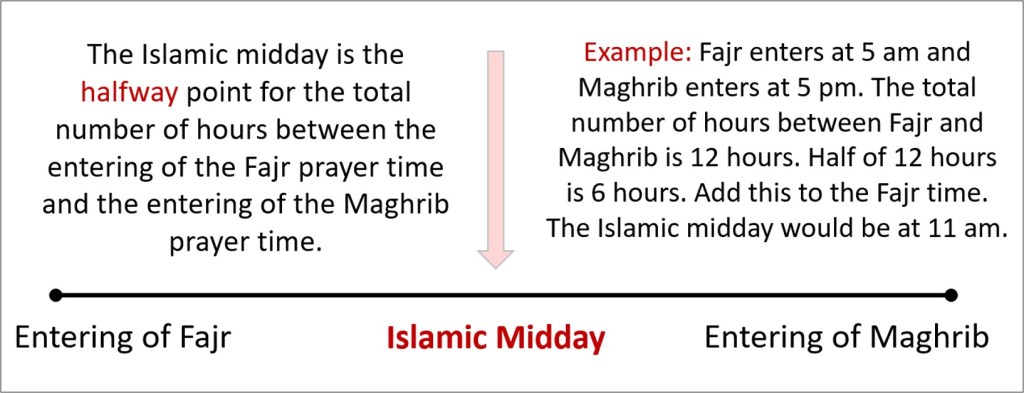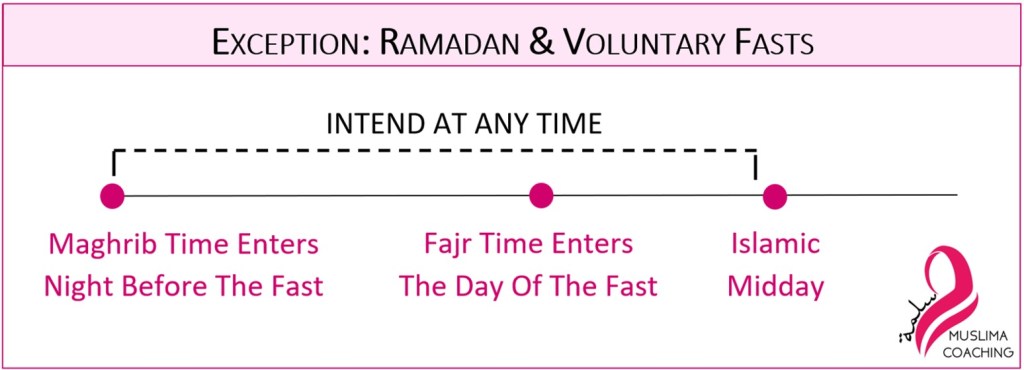Question: What is the Islamic midday? How do I calculate it?
Answer:
Bismi Llahir Rahmanir Rahim
Assalamu alaykum wa rahmatuLlahi wa barakatuhu
The Islamic midday is the halfway point for the total number of hours between the entering of the Fajr prayer time and the entering of the Maghrib prayer time of the fasting day. It does not mean noon, nor does it mean the zawāl.
For example, Fajr enters at 5 am and Maghrib enters at 5 pm. The total number of hours between Fajr and Maghrib is 12 hours. Half of 12 hours is 6 hours. By adding 6 hours to the Fajr time of 5 am, the Islamic midday is known. In this example, the Islamic midday would be at 11 am.

When Is It Used
For current Ramadan fasts, as well as voluntary fasts, it is permitted to make the intention up until the Islamic midday. This is due to narrations of the Prophet ﷺ doing it himself. For these two types of fasts, the allotted time frame begins from the entering of Maghrib the night before the fast up to before the Islamic midday of the fasting day.

Knowing how to calculate the Islamic midday can be useful for a sick person who is unsure if she can fast the next day. She may delay making the intention to fast that day of Ramadan until just before the Islamic midday.
However, this exception is conditioned by her not engaging in any of the fasting nullifiers after Fajr entered. If she ate or drank after Fajr, she cannot make the intention to fast for that day. Likewise, a woman must be free from menstruation and lochia (post-natal bleeding) when Fajr enters, or else her intention to fast will not count.
It must be noted that even though
it is permitted to make the intention to fast after Fajr enters for that day in Ramadan, it is best to make the intention before Fajr enters.
Check out our FREE Fasting For Women course for more details related to the rulings of fasting.
Jazak Allah khayran
Naielah Ackbarali
References:
- Imam Shurunbulali, Maraqi al-Falah
